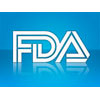
FDA regulators this week put the seal of approval on the 1st EEG system indicated to diagnose ADHD in children in teens. The approval was based on clinical results from a study of 275 children, which showed that EEG testing could be a reliable diagnostic tool to complement other behavioral tests.
The device, called the Neuropsychiatric EEG-Based Assessment Aid or NEBA System, is manufactured by a small Augusta, Ga., device company called NEBA Health.
NEBA Health CEO Howard Merry said his company has been working on the device approval approval for 7 years, according to comments he made to the Augusta Chronicle.
The device, which measures brainwave frequencies and pairs them to already-validated ranges associated with ADHD, is indicated for children aged 6 to 17.
ADHD is one of the most common forms of behavioral disorders in the U.S., with 9% of children and teens diagnosed, according to the FDA. Currently diagnosis involves a complex multi-step process of medical and behavioral tests.
"The NEBA System along with other clinical information may help healthcare providers more accurately determine if ADHD is the cause of a behavioral problem," said Christy Foreman, director of the FDA’s Office of Device Evaluation, according to prepared remarks.

